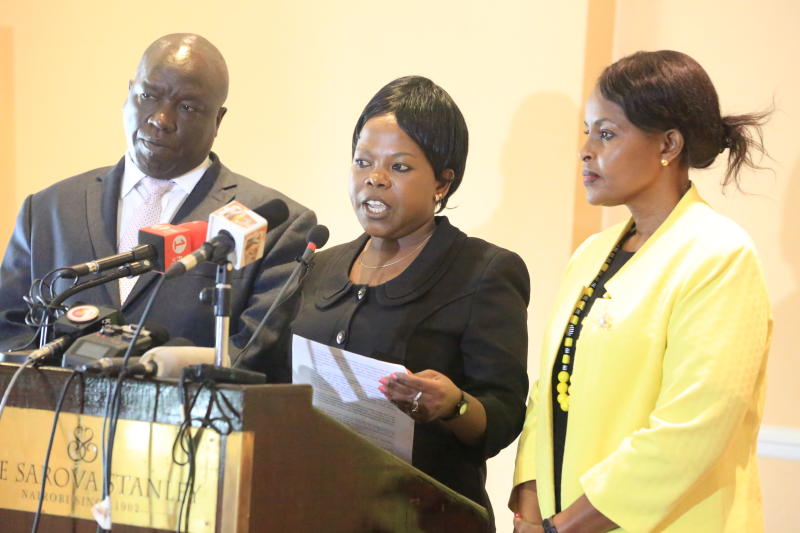×
The Standard e-Paper
Home To Bold Columnists

Former IEBC commissioners Paul Kurgat, Margaret Mwachanya and Consolata Maina when they announced their resignation on April 16, 2018. [File, Standard]
MPs have opened a window for President Uhuru Kenyatta and ODM leader Raila Odinga to take control of the Independent Electoral and Boundaries Commission (IEBC) ahead of the 2022 elections and a possible referendum next year.